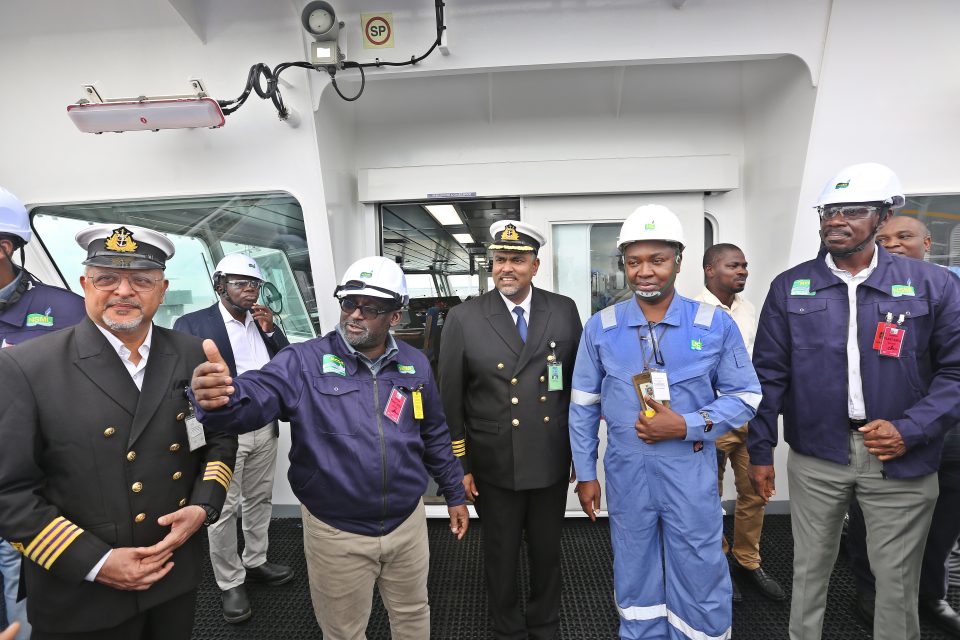The World Bank says Nigeria’s digital economy plan is being continually hampered by an underdeveloped fixed broadband infrastructure.

The global bank disclosed this in its ‘Nigeria Development Update: Time for Business Unusual’ report.
According to the bank, Nigeria’s digital economy can transform economic activities and improve government efficiency.
The World Bank said, “Nigeria’s digital economy can transform economic activities by unleashing new productivity gains, offering new services, and improving the government’s efficiency.
“It can also lead to greater citizen engagement, rebuilding trust and enabling access to service.
“Nigeria has the potential to accelerate its digital transformation by leveraging its relatively strong mobile broadband infrastructure, expanding e-commerce markets, and growing digital financial services.
“However, Nigeria continues to face significant challenges which have hindered the country’s ability to reap the full benefits of the digital economy.
“One leading barrier is Nigeria’s underdeveloped fixed broadband infrastructure, which is attributable to high federal and state taxes and an insufficient wholesale regulatory regime.
“This weak infrastructure base creates a ripple effect across the economy, contributing to low levels of financial inclusion, and persistent geographic and gender gaps in access to and use of digital technologies.”
The bank added that the ongoing security crisis in the North had increased these challenges.
It said, “However, Nigeria is only capturing a fraction of its digital economy growth potential.
“Minimal fixed broadband infrastructure and a lack of accessible and affordable connectivity in rural areas are exacerbating the digital divide.
“The country also faces several additional challenges, including suboptimal management of its telecom and power networks, security, and transparency issues, and constraining fiscal policies.”
According to the global bank, digital technologies have the ability to transform all aspects of the economy, as they lower the cost of economic and social transactions for firms, individuals, and the public sector.
The World Bank added that the nation shouldn’t just focus on the information and communication technology sector, as the digital economy referred to a modern economy enabled by digital technologies.
The bank said because the nation had the largest mobile market in Sub-Saharan Africa, improving digital platforms had the potential to connect governments, businesses, and consumers, create market efficiencies and reduce entry barriers.
According to the bank, e-commerce is one of the biggest strengths of Nigeria’s digital ecosystem.
It said in 2018, e-commerce spending in Nigeria was estimated at $12bn and was projected to increase to $75bn in revenues by 2025.
The global bank said a 10 per cent increase in mobile broadband penetration could lead to a minimum of 0.8 per cent growth in GDP in other regions of the world, and 2.46 per cent growth in Africa.
The report said, “To deliver on the 2030 aspirations of greater access to the digital economy and to meet the bold EGRP’s objective of lifting 100 million Nigerians out of poverty, the government needs to continue to strategically invest in the foundational elements of its digital economy.”
According to the global bank, Nigeria needs about 120,000 to 167,000 kilometres of fibre infrastructure, in addition to its existing 55,000kms, at a cost of $3.4bn. The bank added that this amount included about $870m in fibre deployment costs plus an estimated $2.5bn for 10 years (DCF) cost of Rights of Way fees.
The bank said, “If Rights of Way fees charged by all states are reduced to N145 per metre, then the cost of this dark fibre deployment including RoW fees would decline dramatically from $3.4bn to $1bn, as the DCF of 10 years of RoW fees would decline from $2.5bn to about $150m.
“Currently, lack of an open-access wholesale network, combined with ineffective wholesale access regulation, varied Federal and State levies, and excessive rights of way fees, continues to hamper investments in the sector.
“Unlike West African peers, such as Ghana and Senegal, Nigeria does not have a pervasive, open access national backbone network through which high-speed Internet connectivity can be affordably extended across the entire country. As such, most telecommunications operators in Nigeria continue to self-provision their own infrastructure.
“This has resulted in unnecessary duplicative investments, with high-traffic intercity routes often having three or more fibre-optic links whilst others have none.”
The bank said about 63 per cent of Nigerians living in rural areas remained unconnected, compared to 40 per cent of people living in urban areas.
According to the bank, there is a north-south divide within the country, with southern states well ahead of northern counterparts in access within a household to mobile phones, and in terms of quality of service.
According to the World Bank, if Nigeria is to fulfil the potential offered by the digital economy, it must first improve its digital infrastructure.
It said, “Innovative solutions and strategic interventions and investments are required in order for Nigeria to gain the critical number of Internet subscribers needed to build its digital ecosystem and kick start its digital transformation.













